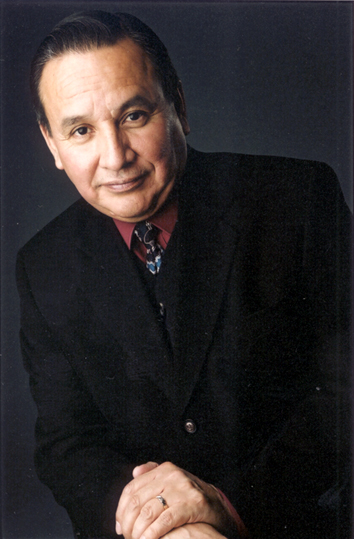THE First Nations Leadership Council on Monday said that it is deeply disturbed that the RCMP recently applied to dispose of approximately 14,000 exhibits related to the Pickton case, and are calling for the preservation of evidence collected from the Pickton farm and Pickton-related properties and associates.
“Further, we are calling for the RCMP to implement a rights-based, trauma-informed, culturally-safe and an Indigenous gender-based analysis plus approach to center the rights of victims, survivors and families,” the Council added.
It said that the RCMP’s application to dispose of the 14,000 exhibits demonstrates a continued failure by police and Crown governments to prevent and ensure accountability for violence perpetrated against Indigenous women in contravention of the National Inquiry’s Calls for Justice 1.5,1.6, 9.1, and 9.5, and their legal obligations under the Declaration on the Rights of Indigenous Peoples Act.
The Council pointed out: “Robert Pickton confessed to killing 49 women, the majority of whom were Indigenous, and was charged with the murders of 26 women. However, he was only convicted of second-degree murder in six cases. Over 25 cases remain unsolved and 20 of the charges against him were stayed.”
It added: “The Pickton case has been marked by marginalization of victims and families, discrimination, police mismanagement, apathy, and negligence, and this latest application by the RCMP is another instance of harmful conduct that deeply impacts survivors and family members. Disposal of this evidence may negatively impact the ability for these families to ever know what happened to their loved ones, and removes all remaining hope for their pursuit of some semblance of justice.”
Regional Chief Terry Teegee said: “The will of those most impacted must guide how evidence is managed in this case. We support families’ advocacy for a moratorium on the destruction of evidence and assurances that evidence will be preserved. We call for urgent action to ensure the proposed disposal of evidence in the Pickton case does not proceed. The RCMP and other policing bodies must be accountable for adhering to their obligations; conducting thorough and respectful investigations that uphold the human and Indigenous rights of Indigenous peoples.”
Grand Chief Stewart Phillip, UBCIC President, said: “Just last week, December 6, 2023 marked the National Day of Remembrance and Action on Violence against Women as well as 20 years since the Pickton farm was finally searched and we’re still echoing the calls of family members for the RCMP and justice authorities to prioritize and dedicate adequate resources to pursuing justice for the murder victims. These women were and are beloved and their lives matter. Their families have gone through hell and back fighting for justice and deserve to know what happened to them and to have the perpetrators and justice authorities held to account for the atrocities committed in this case. This evidence, which includes cherished belongings of stolen loved ones, holds a truth, and as far as I’m concerned, the police have no authority over the truth.”
Cheryl Casimer of the First Nations Summit Political Executive said: “We call for systemic change that upholds the rights of all Indigenous women. The United Nations Declaration on the Rights of Indigenous Peoples, the Calls for Justice, outstanding recommendations from the Oppal Inquiry, Highway of Tears Symposium Report, and the Red Woman Rising Report, among many others, provide direction on the urgent actions required to uphold the safety and wellbeing of Indigenous women and gender diverse people, including the rights of sex workers. For too long well-researched and widely known priorities and insights into ending systemic gender-based violence and its brutal impacts on our communities have been ignored, and this cannot continue any longer.”
The First Nations Leadership Council is comprised of the political executives of the BC Assembly of First Nations (BCAFN), First Nations Summit (FNS), and the Union of BC Indian Chiefs (UBCIC).
MEANWHILE, the BC RCMP said in a statement: “In light of the recent press conference by Justice For Girls that included some of the victims’ families, we would like to clarify the ongoing legal applications and court processes with respect to the exhibits held by police in connection with the Pickton investigation. First, we acknowledge that this investigation and subsequent trial has impacted many Canadians, none more so than the families of the victims. Their loss is immeasurable and irrevocable.
“With respect, while the RCMP is making applications to the court for the “disposal” of property held by the police, it is important to understand that all evidence is being preserved. To put it simply, the RCMP is not authorized to retain property indefinitely and is making application to the court for disposition of that property. Ultimately, this process is required by law and is for the intended purpose of returning property to the rightful owners, where applicable, or for the disposal of items not claimed. Throughout this process we have been working closely with the victims’ families to return their loved ones’ belongings as well as local First Nations to ensure disposal is done in a culturally sensitive way. This consultation is ongoing and is not something that we can elaborate on at this time.
“To be clear, as all possible evidence has been captured and retained, the disposal of property would not affect any future prosecution. Ultimately, the disposition of property must be decided by the courts and we await that decision.
“As the court process is ongoing, we are not in a position to comment further at this time.”













